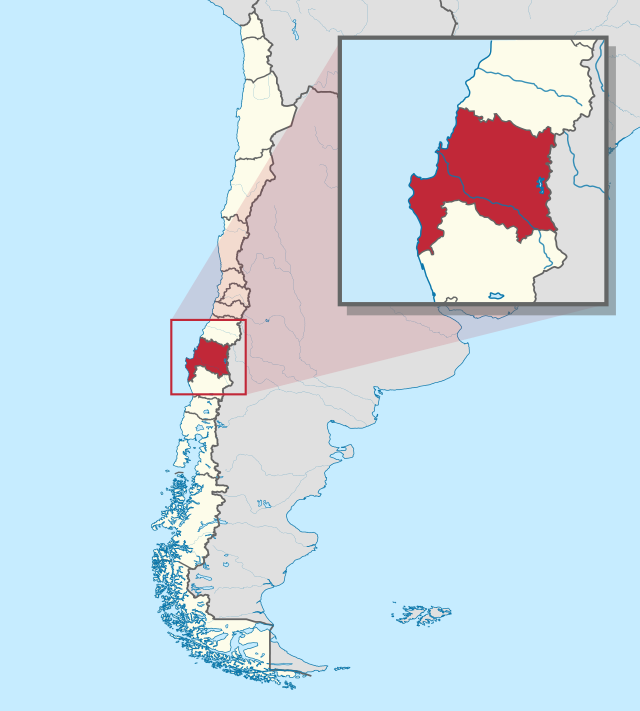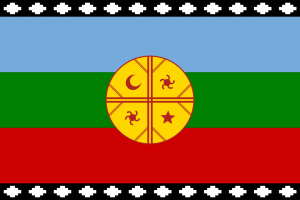EspañolOn Wednesday, the Inter-American Court of Human Rights (IACHR) delivered a major upheaval with their ruling on the case of Mapuche indigenous leaders, members, and activists vs. Chile. The six on the court who presided over the case have mandated that Chile’s central government revoke the terrorism sentence and conviction against seven Mapuche individuals and one activist.
The case dates back to arson incidents in 2001 and 2002, which took place in the Biobío and Arucanía regions. The seven — including activist Patricia Roxana Troncoso Roble and one Mapuche who is now deceased — were indicted in 2003 under the Anti-Terrorist Law. The charges were for setting fire to trucks that were transporting industrial materials.

Now the Bachelet administration must revoke the prison terms and civil penalties, wipe their records, and grant them freedom without condition. In addition, they will need to annul any national or international record linking the individuals to terrorist acts.
According to the IACHR decision, “the state must adopt judicial, administrative, or other measures to revoke, in every way, the prison terms ordered.” Furthermore, the international court has determined that the state must implement measures to compensate those wrongly condemned, since “any violation of an international obligation that has caused damage must adequately remedy the damage caused.”
José Antonio Gómez, Chile’s minister of Justice, declared on Wednesday that Chile will comply with the IACHR ruling.
The executive director of the Intercultural Chile Foundation, Venancio Coñuepan, explained two relevant aspects of the ruling to the PanAm Post: “First, it restores the justice denied to the Mapuche people for a long time. Second, it solves the debate about the enforcement of the anti-terrorist law in matters related to the misnamed Mapuche Conflict, which will force the state to rethink public policy towards the indigenous community”
Compensation That Fits the Damages?
One of the most important aspects of the judicial decision is the need for restitution, rehabilitation, satisfaction, and financial compensation to redress the victims.
Restitution measures refer to ways to void the legal penalties on the victims, and the IACHR includes this as a redress. However, if complications impede full restitution, the court mandates other measures to guarantee the violated rights and remedy the consequences of the infringements.
Rehabilitation measures include medical and psychological attention for the victims. The IACH requests the “coverage of all future medical expenses that the victims and their families will need as a consequence of the violation of their rights.” Even though the ruling does not indicate a concrete sum, it specifies “access to health benefits (both physical and psychological treatments) for the victims and their families. This must be done with an intercultural criteria.”
Satisfaction measures include publication and release of the decision, along with “additional compensation in the form of study grants for the children of the victims” to remedy “intangible damages.” In other words, the Chilean state will have to award study grants to public institutions that cover all the costs of their education until they finish their higher education, be it at a technical college or university.
The decision also includes financial compensation for material damages (monetary and physical) and non-pecuniary damages (psychological and sentimental), in addition to reimbursement for the costs and expenses incurred by the victims. The court determined that each victim shall receive US$50,000 in compensation for both kinds of damages. Taxpayers will also have to pay US$29,000 in fees and judicial costs incurred by the victims.
According to Coñuepan, the compensation measures are those that the IACHR could impose, given the details of the case. However, he says that Chile’s own public officials can do a lot more to address the Mapuche cause.
Next Stop: Anti-Terrorist Law Reform
Coñuepan believes that is necessary to reform Chile’s anti-terrorist law, since this latest case undermines its enforcement: “The legitimate demands of the Mapuche people must not be confused with terrorism,” he says.

He added that violence must always be condemned, no matter where it comes from. However, there are “indigenous territorial claims that possess the rightful title deeds that the state of Chile must first acknowledge, then respect, and finally restore.”
Coñuepan also claims that the anti-terrorist law is full of loopholes, making it an undemocratic tool: “The law does not clearly define the criminal offense of terrorism, and there are forms of proof, such as protected witnesses, that blur ethical boundaries. Besides, the law is inefficient, as the ministry of Interior Rodrigo Peñailillo acknowledged some days ago.”
Regarding this point, Chile’s minister of justice has indeed said that the Chilean state was already convinced — even before the ruling — of the need to reform the law.
According to Gomez, though, is not up to him “to evaluate whether it was appropriate or not to enforce the anti-terrorist law at that time.” He says that from now on all the correct measures needs to be taken so Chile can have a legislation that abides by international standards and protects citizens’ rights. He adds that the anti-terrorist law has been completely useless in terms of address the problems originally targeted.
 Versión Español
Versión Español












